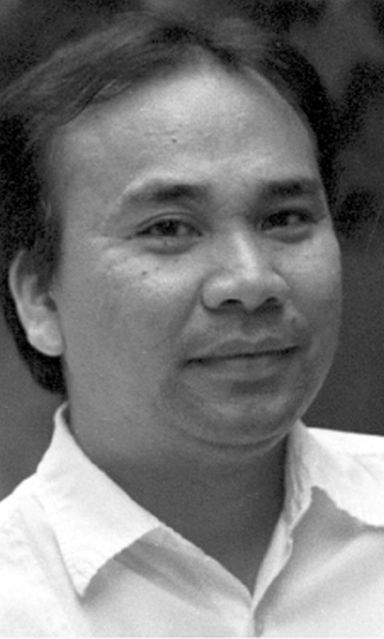
BERSALES
New York — By the time this piece comes out, the exposé of my friend and fellow aktibista during our student days, Marivir Montebon, on the scourge of Filipino human trafficking in the United States will have been launched already.
This and the thick 80th anniversary commemorative book of the University of San Carlos School of Business and Economics (SBE) will be presented at the Philippine Center in New York at 6 p.m. of Wednesday, (Thursday, Philippines Time).
“In the Belly of the Beast: Stories of Sadness, Stories of Success by Filipinos Trafficked in America,” published by the University of San Carlos Press, details Marivir’s interviews with Filipinos who thought they were on their way to a good life in the proverbial green pastures of the United States, only to be thrown into the beast as it were: living and working in dehumanizing conditions, one that they never signed up and paid for.
The story of this book began in 2015 when we came here to launch another book on the impact of the October 15, 2013 earthquake on the churches in Bohol.
My interest was piqued by the stories Marivir told me during that brief time we met in 2015 regarding her work as a paralegal documenter of various cases.
The most critical of these involved cases for the issuance of a T Visa, a recent addition made by the United States Congress under Pres. Barak Obama, to provide temporary relief to persons who are able to prove that they were trafficked without their knowledge.
Rapacious recruiters, some of them based in Cebu, lure teachers, engineers and other professionals, milking them dry with all kinds of nonexistent fees, forcing them to pawn their properties to the illegal recruiters’ own attached financing firm. With constant promises of a job waiting in the US, they lure the innocent with their pleasant smiles and friendly postures.
As soon as the recruit arrives in the US, everything turns dark and cold, literally, as in the case of one teacher who had to live with a dozen others in a two-room apartment with no blankets.
The smile and the friendly posture of the recruit disappear and a monster emerges. And instead of teaching pupils in Maryland, she ends up taking care of elderly patients with not even half of her promised salary.
All this while she had to live on the floor without any pillow or a blanket in the dead of winter. Worse, everyone was told to pay 400 dollars each for the apartment that only cost 700 dollars total!
Take the case of Jason, who, Marivir details in the book, was an electrical engineer in the Philippines and applied to be the same in the US only to end up in a hotel basement doing the laundry of bed sheets using a huge washing machine with no adequate protection from the awful smell of the toxic chemicals used.
Fueled by a supply line run by unscrupulous Americans who are all too happy to receive human labor at half or even a quarter of the hourly minimum wage here, modern-day slavery is a reality that cannot be overlooked and this book makes sure no one will ever deny that this exists.
Thankfully, Marivir provides some success stories in the book, narrating stories of those brave enough to run away from the tight psychological control and fear-mongering of these illegal recruiters and their American counterparts.
At the same time, Marivir provides warning in one chapter about the greed of Filipino-American lawyers who make the condition of the trafficked person worse by sloppy paperwork before the courts.
The University of San Carlos is as deeply concerned as everyone should be with regard to this modern-day slavery, and it is pleased to present this slim but nevertheless very loaded volume with its deeply moving narratives of those who were trafficked, some now in hiding from their illegal recruiters as they pursue their cases in courts here.
* * *
Also being launched here in New York is the thick, nearly 300-page coffee table book entitled, “Creating, Managing, Distributing Wealth: The USC School of Business and Economics at 80.”
The book’s endearing value is detailed partly in the articles written by the SBE’s different teaching and learning units as well as its harvest of CPA Board topnotchers through the years and its local international industry and academic linkages.
An equally significant part of the book, more than half of the pages in fact, is devoted to brief bios of alumni achievers, both in the Philippines as well as abroad where they either (as the title suggests) create, manage or distribute wealth to serve others.
Under the leadership of its dean, Dr. Challoner Matero and the book’s Editor-in-chief Joyce Natalie Yang, the book is designed to be just a beginning of more books detailing many more alumni achievers to come — one more reason to be here in the US where many College of Commerce graduates are making waves, like that of Jaena Hermosilla-Valles, who runs her own large accounting firm here in New York.
More to come!
Disclaimer: The comments uploaded on this site do not necessarily represent or reflect the views of management and owner of Cebudailynews. We reserve the right to exclude comments that we deem to be inconsistent with our editorial standards.
